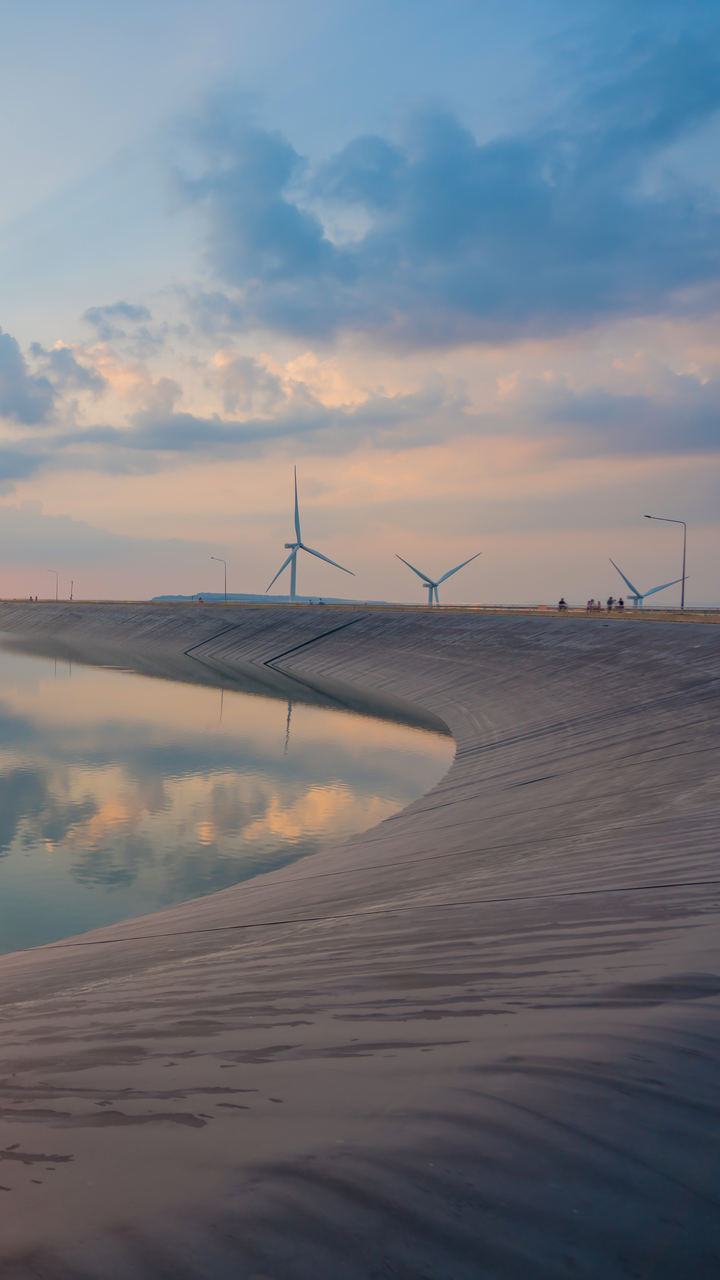Navigating the Waters of Sustainable Hydrogen Production

Hydrogen is considered a potential clean and environmentally friendly energy carrier; however, the production of low-carbon hydrogen can require a significant amount of energy and water resources. Therefore, it is crucial to navigate the waters of sustainable hydrogen production to ensure that the production process is efficient and sustainable.
In our latest eBook Water Resilience in the Hydrogen Economy, Black & Veatch explores four key water supply considerations for hydrogen production. Environmental considerations – such as water availability, quality, and quantity – top the list, especially as water scarcity threatens many areas of the world. When it comes to developing sustainable low-carbon hydrogen projects, here are a few things you should consider:
Water Supply Needs to be Addressed at a Local Level
Hydrogen production requires a significant amount of water, and in areas where water scarcity is a concern, the water used for hydrogen production may compete with other uses. It is essential to manage water supply for hydrogen production at the local level to address the challenges that arise from large-scale infrastructure projects. Water supply management systems can be established to meet the demand for water resources in hydrogen production. The source, or sources, of available water should be carefully selected based on sustainability, availability, and quality. Diversifying water sources is a prudent way to prevent the project from being solely dependent on a single source of water. To ensure the sustainability of water supply for hydrogen production, water treatment and reclamation systems can be implemented to reduce the dependency on freshwater and reduce wastewater generated from the production process.
Water Quality is Crucial for Hydrogen Plant Water Supply
High-quality water is necessary to ensure that the hydrogen production process runs smoothly and efficiently. Poor water quality can negatively impact the production process, leading to reduced efficiency and increased costs. Water quality can also impact the equipment used in hydrogen production, as contaminants in the water can cause damage to equipment.
Water quality can also impact the supply of water to hydrogen plants. If the source of water is of poorer overall quality, such as brackish groundwater or seawater, or not adequately treated, then the water may need to undergo further treatment before being used in hydrogen production. Treating water to an appropriate quality level can be time-consuming and costly. Furthermore, the disposal of wastewater generated from the treatment process can be challenging and may result in environmental impacts if not properly handled.
The amount of energy required for hydrogen production is also a significant environmental consideration. Electrolysis requires a considerable amount of electricity, and one way to potentially improve asset utilization and carbon intensity in hydrogen production is to use renewable energy sources in combination with grid-supplied electricity. Renewable energy sources, such as solar and wind, can produce the electricity needed to power the electrolysis process and help reduce greenhouse gas emissions. Additionally, the electrolysis process can be optimized to reduce energy losses. Electrolysis project efficiency and reliability is affected by various factors such as ambient temperature, operating pressure, and impurities in the water used. Therefore, proper management of these risks and project design considerations can help improve the viability of the electrolysis process and the associated energy consumption required.
Treatment Processes Impact More Than Just Water
Water treatment processes are used to remove impurities and contaminants from water to ensure that it meets the quality requirements of the hydrogen production process. Various water treatment methods such as distillation, reverse osmosis, and ion exchange are used to treat water to an appropriate quality level.
However, water treatment processes can have environmental impacts that should be considered in hydrogen production projects as well. Treating water for electrolysis generates wastewater that may contain contaminants and chemicals that could be harmful to the environment if not properly managed. Disposal of this wastewater requires appropriate handling and treatment to prevent damage to local ecosystems. Additionally, water treatment processes can be energy-intensive, which can lead to greenhouse gas emissions. Hence, it is important to consider the environmental impacts associated with water treatment processes in hydrogen production and implement strategies to mitigate them. This can include choosing treatment methods that are more energy-efficient and implementing proper wastewater management protocols to reduce environmental impacts.
In conclusion, producing low-carbon hydrogen requires careful consideration and management of water and energy resources. Sustainable hydrogen production is critical to reducing greenhouse gas emissions and mitigating climate change impacts. Addressing available water supply and quality at a local level, optimizing electrolysis project architecture, and implementing proper wastewater management protocols are crucial to ensuring sustainability. By considering these factors, hydrogen production can be achieved in a manner that balances the needs of the environment, society, and the economy. It is up to policymakers, water managers, and industry leaders to work together to create a sustainable hydrogen production industry that mitigates potential environmental impacts and benefits society as a whole.
Contact Us
Looking for a partner in innovation?
Let's Talk
